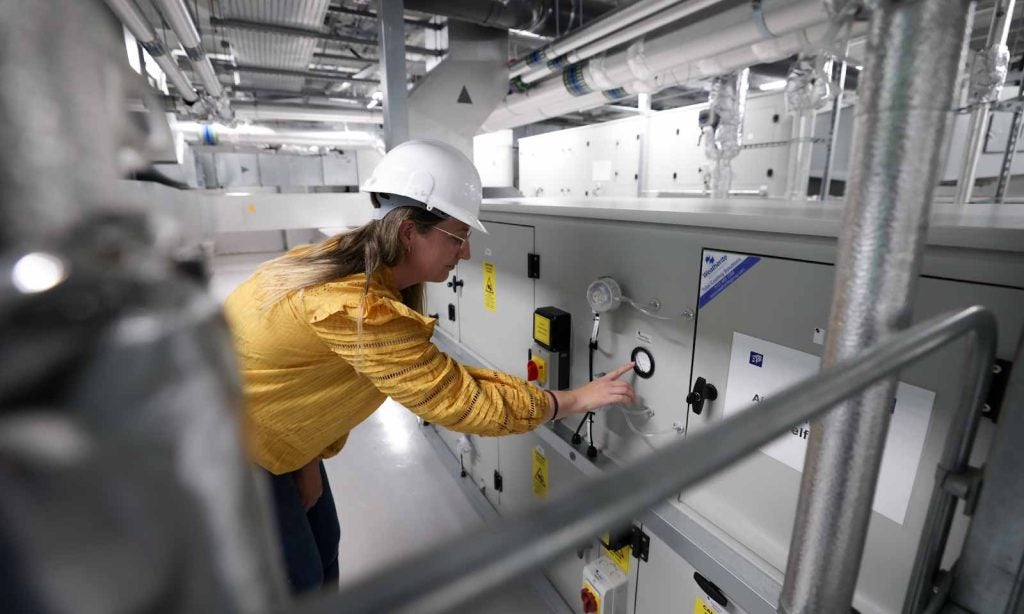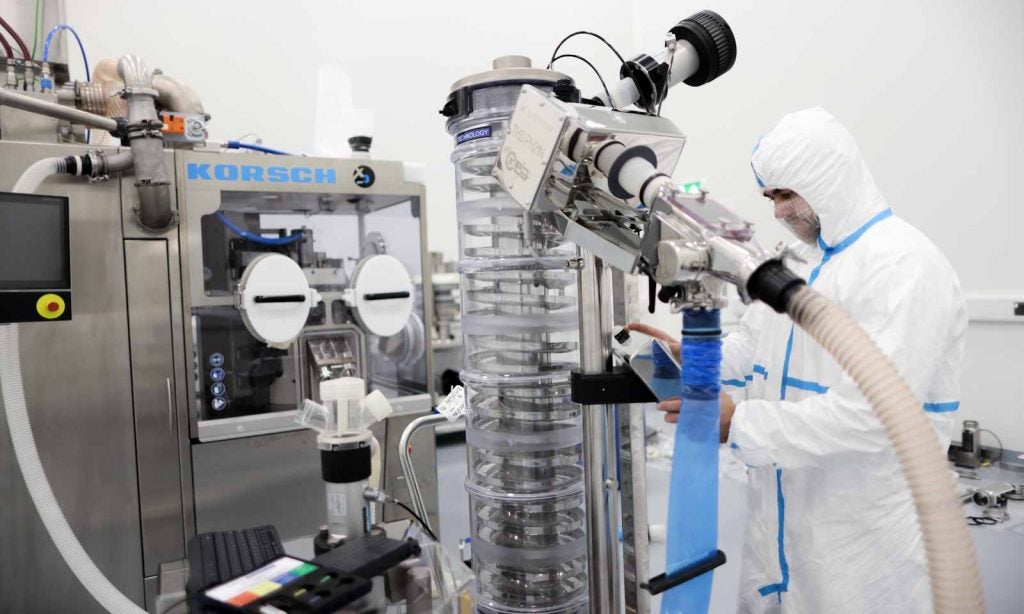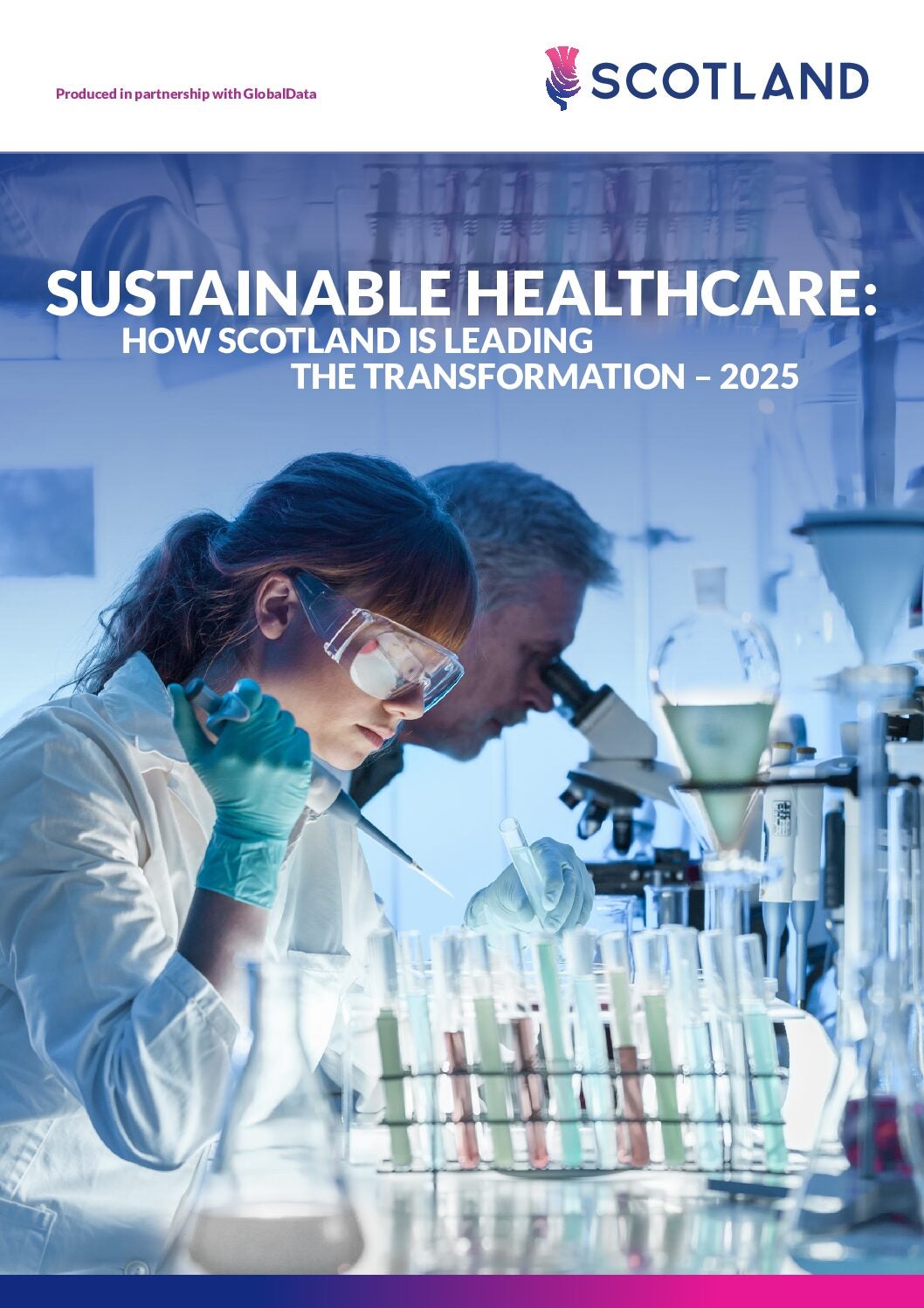
Oligonucleotides have long been heralded as a revolutionary therapeutic – but key issues surround manufacturing at scale and the sustainability of processes.
Using short, chemically synthesised fragments of DNA or RNA, oligonucleotides target messenger RNA in the body to either halt or increase protein expression. This is because an excess or shortage of protein expression is often the underlying cause of many illnesses or diseases, including heart disease, cancer and Alzheimer’s.

The impact of oligonucleotides when implemented at scale could be huge, since many serious diseases or conditions have previously been considered incurable, especially as they advance.
However, manufacturing oligonucleotides, otherwise known as oligos, is costly and inefficient, making scaling up patient access to these therapeutics a considerable challenge.
“[Currently,] there are only 17 approved oligonucleotide products globally, and all bar one are for rare diseases,” notes Barrie Cassey, medicines manufacturing technology lead at CPI.
Addressing the need to develop manufacturing capabilities is Scotland’s new Oligonucleotide Manufacturing Innovation Centre of Excellence, led by CPI. Awarded a multi-million-pound grant in the UK Government’s 2023 Autumn Statement, the centre in Renfrewshire is set to commence operations this year and be completed by 2025. The UK Government has provided £10m in funding, with Scottish Enterprise also providing £10m.
A key task for the new centre is building on the work already undertaken by CPI’s Medicines Manufacturing Innovation Centre to advance oligos production. Working with a range of partners from industry, government public sector agencies and academia, the centre will explore solutions to the sustainability problems that currently threaten to restrict the mass production of oligos.
Enabling the scalable and sustainable production of oligonucleotides
Oligos manufacturing still uses the same processes developed in the 1970s, which require huge amounts of chemical solvents. The process produces tens of thousands of litres of liquid waste, meaning that the limited number of oligos currently on the market have a disproportionately high environmental impact.
Countries such as the USA and China might be the leading producers of oligos worldwide, but the Medicines Manufacturing Innovation Centre looks set to place Scotland at the forefront of developing new processes.
“Nobody else in the world has that level of concentration and focus on manufacturing innovation and skills development,” says Cassey. “It just doesn’t exist. There are lots of people engaged in collaborations, and centres looking at therapy discovery. But no one is focused on manufacturing.”
CPI’s Grand Challenge 3 aims to solve the environmental challenges behind oligos manufacturing and develop sustainable processes to support the future market. Based on current technologies, it is only possible to produce small batches of oligos at a time. Typically, one week of manufacturing requires as much as four tankers worth of solvent. Grand Challenge 3 seeks to use liquid phase synthesis to enable the scale-up of manufacturing processes to make larger batches fewer times a year using far lower levels of solvent.
“We recognise that there is not a magic bullet to making them more sustainable, cheaper and scalable,” adds Cassey. “You need to have a portfolio of options to pick the right solution for the right molecules.”
A variety of manufacturing options are also being explored, from recycling chemical solvent to producing oligos enzymatically rather than chemically. Once oligos can be produced with a lower environmental impact and less wastefully, it should be easier to scale manufacturing to enable more patients to receive these vital medicines. The Centre of Excellence intends to accelerate manufacturing timelines and enable partners to develop future treatments for cancer, Alzheimer’s and cardiovascular conditions.

Partnerships to accelerate advances in oligonucleotides
Central to the new centre’s capabilities are the partnerships behind the initiative. Jointly funded by the UK and Scottish governments, the centre will build on the networks already established by the Medicines Manufacturing Innovation Centre, a first-of-its-kind collaboration led by CPI between government, public sector agencies, academia and big pharma.
The oligos centre will benefit from CPI’s links with the likes of the University of Strathclyde, GSK and AstraZeneca, as well as the firm backing of government agencies such as Scottish Enterprise and the UK Office for Life Sciences. This makes the facility one of the leading pharma innovation centres not just in the UK but also in the rest of the world.
Central to the centre’s mission is to support small and medium-sized enterprises (SMEs), which have a vital role to play in pushing the boundaries of innovation in pharma development but are often left behind.
“It’s often the SMEs who are at the forefront of developing [new] therapies,” explains Andrew Henderson, senior manager at Scottish Enterprise’s life sciences industry team. “But they’re at the back of the queue when it comes to having that manufactured for them.
“A number of organisations have approached the Medicines Manufacturing Innovation Centre and specifically said: ‘Can you help us to get manufacturing of these [products] in the future? Because we are struggling’.”
Together with the collaboration at the Medicines Manufacturing Innovation Centre, those behind the new oligos centre hope to address this imbalance and ensure that companies of all sizes working in oligos can manufacture their products. Because the centre was set up in collaboration with big pharma companies, it is equipped with all the technical capabilities these businesses require. However, the team there is committed to leveraging this technology to support SMEs and drive further innovation.

A global manufacturing hub for oligonucleotides
The oligos centre will act as a regional and worldwide manufacturing hub, which is expected to attract more companies to Scotland so they can benefit from the capabilities offered by the centre. It is hoped that the project overall will stand at the top of a dynamic supply chain that leverages the best of Scottish and international talent to create a workforce of oligos specialists, drawing on the talent pool from national universities with a global reach.
“[We are] involved in over £30m of innovation projects in [oligos] manufacturing,” notes Cassey. “I don’t think you’ll find anything even close to that number anywhere else in the world.”
On 23 April, CPI will explore a potential future at its 2nd Oligonucleotide Manufacturing Symposium event. Bringing together stakeholders from across the supply chain, the symposium hosts speakers from across industry, academia and government in Scotland. Expert panels will discuss challenges and solutions relating to oligos, including the best way to develop production at scale.
This event is emblematic of the change the Oligonucleotide Manufacturing Innovation Centre of Excellence hopes to drive in partnership with the Medicines Manufacturing Innovation Centre. By investing in oligos manufacturing and working in close partnership with involved parties, treatments for some of the most serious diseases on the planet could be transformed in Scotland and may even one day provide a cure.
To learn more about how Scotland is focusing on sustainability in healthcare, download the document below.



